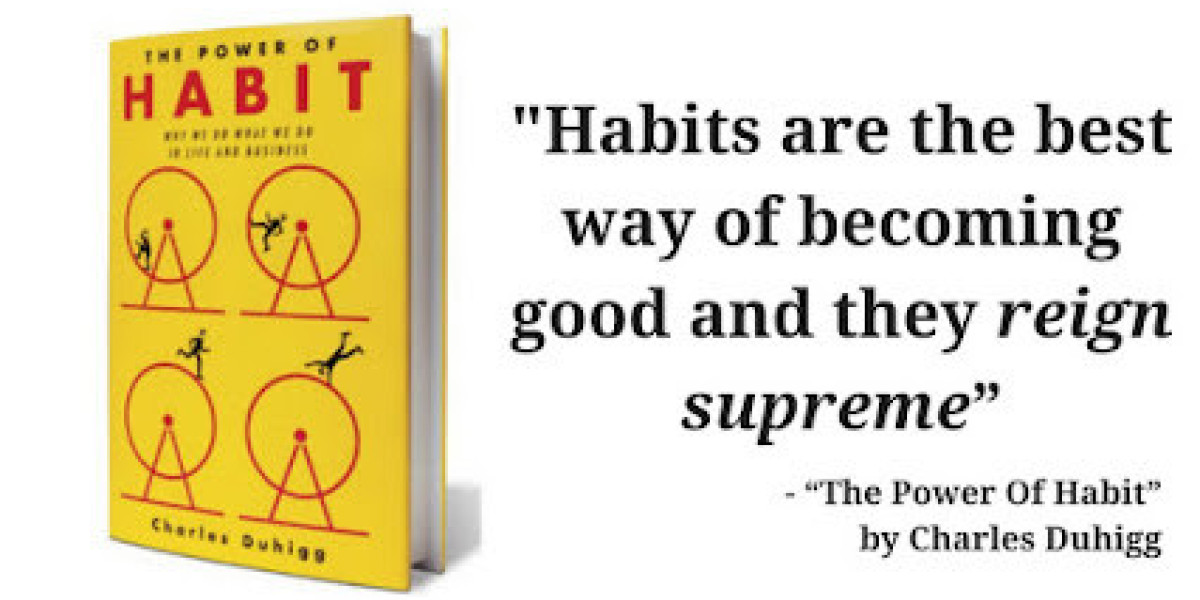Habits are the invisible architects of our lives. They shape our actions, thoughts, and ultimately, our destiny. Whether it's the routine of brushing teeth in the morning or the tendency to procrastinate, habits define much of what we do daily. Understanding how habits work, how to form beneficial ones, and how to break detrimental ones is crucial for personal growth and development.
Understanding Habits:
At the core of habits formation lies a simple neurological loop: cue, routine, reward. The cue triggers a behavior, the routine is the behavior itself, and the reward reinforces the behavior, making it more likely to recur in the future. This loop is deeply ingrained in our brain's neural pathways, making habits difficult to break.
Forming Beneficial Habits:
Forming new habits requires deliberate effort and consistency. Start by identifying a clear and achievable goal, then break it down into smaller, actionable steps. Attach these steps to existing cues or routines to leverage the power of habit loops. For example, if your goal is to exercise regularly, associate it with a specific cue like putting on workout clothes, then perform the routine (exercise) and reward yourself afterward. Over time, this repetition will solidify the habit.
Moreover, accountability can significantly boost habit formation. Whether it's sharing your progress with a friend or joining a group with similar goals, external accountability can provide the necessary motivation and support to stick to your habits.
Breaking Detrimental Habits:
Breaking bad habits can be challenging but not impossible. Start by identifying the cue that triggers the habit. Is it stress, boredom, or a specific environment? Once you've pinpointed the cue, work on replacing the routine with a healthier alternative while preserving the reward. For instance, if you tend to stress-eat, find a different coping mechanism such as going for a walk or practicing deep breathing techniques. The key is to disrupt the habit loop by changing the routine while still satisfying the underlying need.
Consistency and patience are crucial when breaking habits. It's normal to experience setbacks along the way, but every small victory counts. Celebrate your progress and learn from any lapses to strengthen your resolve.
The Role of Mindfulness:
Mindfulness, the practice of being present and aware of one's thoughts and actions, plays a significant role in habit formation and breaking. By cultivating mindfulness, individuals can develop greater self-awareness, making it easier to recognize habitual patterns and consciously choose alternative behaviors. Integrating mindfulness practices such as meditation and journaling into daily routines can enhance self-regulation and promote positive habit formation.
The Impact of Environment:
Our environment exerts a powerful influence on our habits. Surrounding ourselves with cues and environments that support our desired behaviors can significantly increase the likelihood of success. Conversely, removing or minimizing triggers associated with detrimental habits can help break their hold. For example, if you're trying to reduce screen time before bed, create a technology-free zone in your bedroom to promote better sleep habits.
Furthermore, social dynamics play a crucial role in habit formation. Building a supportive network of family, friends, or peers who share similar goals can provide invaluable encouragement and accountability.
The Long-Term Benefits:
Investing in habit formation and breaking can yield profound long-term benefits for personal growth and well-being. By cultivating positive habits such as regular exercise, healthy eating, and lifelong learning, individuals can enhance their physical health, mental resilience, and overall quality of life. Moreover, breaking free from detrimental habits frees up mental and emotional bandwidth, allowing individuals to pursue their goals and aspirations with greater focus and clarity.
Conclusion:
Habits are the building blocks of behavior, shaping our lives in profound ways. Understanding how habits work, both in formation and breaking, empowers individuals to take control of their actions and ultimately, their destiny. By harnessing the power of habits, we can cultivate positive behaviors, break free from detrimental patterns, and unlock our full potential for personal growth and fulfillment.







